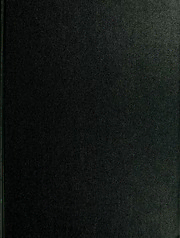
Lycoming quarterly PDF
Preview Lycoming quarterly
Digitized by the Internet Archive in 2009 with funding from Lyrasis IVIembers and Sloan Foundation http://www.archive.org/details/lycomingquarterl0804lyco jYcoming quarterly /.8:4 1993 Lycoming College THE PRESIDENT'S REPORT Of Gifts 1992 1993 ^ i -i jOytyf^nr Message from the Preside When my family and I arrived in Williamsport in the summerof 19§ii^e ^JFe followed within weeks by a group ofeager freshmen. That freshman class graduated in May ofthis year. A number ofthemcommentedatgraduationonthespeedwithwhichthefouryearshadpassed. Icouldnotagree with them more. Aswastruewiththe membersoftheClassof1993,1,too,uponmy arrival at Lycoming, found myself faced with new challenges and opportunities. When I accepted the presidency, I knew that the quality of Lycoming'seducational program wasstrong, butIalsoknewthatthe PresidentJamesE.Douthat College's instructional methodology was among the most expensive to deliver. Challenged by a lacklustereconomicclimate,theharddemographicfactsofadecliningstudentpool,andtheescalating — — costs ofdelivering adistinguished baccalaureateeducation, we were facedthen and now with the questions astowhetherLycomingcouldcontinuetooffersmallclasses, individual attention, ahighly credentialed faculty, and a wide array of student services and pro- grams. In addition, the College long agohadestablishedtherequire- ment that we maintain our facilities to be second to none. The combination ofthese institutional goals resulted in an opera- tional budget that continues to grow at twice the rate of inflation. Clearly, every college in the country faces the same dilemma if it establishes or maintains the same standards of operation as Lycoming. But, merely being in good company does not diminish the problem: very few families today can afford the cost ofthis kind of private, higher education. More than 80% ofour own students need some kind offinancial aid. Next year's predicted financial aid budget will set a new record at $6.6 million. That figure represents a 128% increase over our P^ financial aid commitment in 1989. In each ofthe last four years, we have met the many challenges. Once again this year, we have balancedourbudget. Wecontinue toconserveourresources, to lookfornew ways tocutcosts, andto maximizeeverydollarwithinourbudget. Asaresult,Ibelievethatwe aregivingourstudentsoneofthebesteducational valuestobe found. In 1990, as we prepared a four-year strategic plan for the institu- tion, we saw an opportunity forgrowth in ourtotal enrollment. (For several years, Lycoming had not been at full capacity.) We set for ourselves the goal ofreaching ourmaximum student capacity by the 1993-94academicyear. WewillreachthatgoalbySeptember 1993andhavedonesowhileincreasing the academic quality ofeach entering class. The average SAT scores ofthis fall's incoming class is morethan 10pointshigherthanlastyear,forexample, atatimewhenSATscoreshavebeendeclining on both the national and state levels. Withmaximumenrollmentcomesanadditionalchallenge. Wewill findthatnewrevenuegenerated from tuition will be limited, primarily because of the financial aid required by the majority of our students. Youmayhavereadthatmanyfinecolleges,suchasSmithandCarleton,haveannouncedthat they no longercan afford to admit students on the quality oftheirapplications alone. They must now considertheirabilitytopay. OneofLycoming'sgreattraditionshasbeentowelcomeall studentswho qualify for admission, and then the College attempts to find the resources to make it possible for them to attend. Colleges with far — greatereconomicstrength highertuition,largerendowments,greater — annual gift funds are now abandoning the so-called "need-blind" admissionsprocess. AtLycoming,ourgreatestchallengeistoremain "need-blind" in admissions while retaining an educational delivery system hallmarked by small classes taught by highly trained, experienced faculty. Ourendowment,currendyvaluedat$22,800,000, ismodestwhencomparedwithourpeercolleges. Ourtuitionandroomandboardat$17,200isinthemid-rangeofpeercollegesasareourfacultysalaries.
